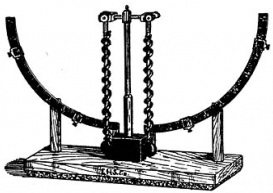Measurement is crucial to a wide variety of epistemic activities in the psychological and biomedical sciences as well as in everyday clinical practice. Yet, several attributes—such as pain or anxiety—are generally viewed as resistant to quantification via measurement of some physical proxy. Since these attributes are unobservable, they are referred to as hypothetical or theoretical constructs, useful in the light of our available theories of those constructs. Construct validation is the practice of testing whether these constructs are adequately capturing the attributes of interest and their quantitative structure. This project focuses on how construct validation practices were implemented in the psychological sciences before the scientific literature started explicitly discussing construct validation in the 1950s.
More precisely, the project will analyze what role construct validation practices played in the emergence of early psychophysical concepts. Experimental psychology went through a major leap forward in the second half of the nineteenth century, thanks to the work of Ernst Heinrich Weber and Gustav Theodor Fechner, who showed that mental phenomena can be quantified by correlating them with physical stimuli. After initially analyzing Weber’s and Fechner’s experimental activities to reconstruct their views and practices of construct validation, the project’s focus will extend to other scientific communities directly engaging with their work (e.g., Gestalt psychologists) or working on similar issues (e.g., Helmholtz and the origins of physiological acoustics). This research will provide an initial grasp of the historically changing and contextually determined character of attempts at validating quantitative constructs in psychophysics before the emergence of construct validation as an explicit epistemic category.

